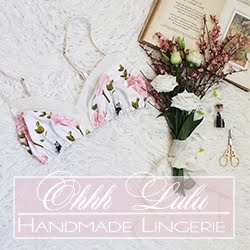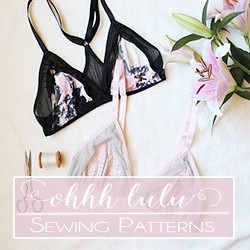Yesterday I had the very amazing opportunity to speak to someone at Etsy about their recent policy change. Having someone reach out to me to discuss the struggles I am dealing with was a huge deal for me, and although the policy change is here to stay, and I may not 100% agree with it, it was very reassuring to speak with someone about the challenges they have internally and how it may impact my shop and me as a buyer. Etsy may be young, but it is a relatively large company with millions of users. It felt empowering to know that they actually are listening.
I've been thinking about the policy change a lot lately, and discussing it with my friends inside and outside of Etsy. I'm with Etsy for the long-haul; although I do plan to diversify my selling venues, I can't leave Etsy. I co-lead a Team, I have friends there, I am an obsessive treasury maker... The community is what keeps me at Etsy, and this particular Etsy Staff Member's ability to reach out to me when I was having serious concerns about the future of Etsy really made an impact on me.
At the Town Hall Meeting, when the changes were announced, someone asked the question "What's not handmade?" I immediately think that something factory produced is not handmade. I think you would all agree with me, and I think that Etsy understands how their new policies are problematic in this way. The new policy makes it clear that manufacturing or 3rd party assistance is entirely acceptable, but shops who want to use this type of outside help have to apply to do so. I am very interested to see what happens over the winter, and what types of manufacturing actually gets through the Etsy filter. I am hopeful that Etsy will maintain high standards for the type of production that is being used.
It is my understanding that Applications for Manufacturing Assistance will be screened by the Integrity Team. Etsy is increasing the staffing by 30% in this division, so I am hopeful that the screening process will be quick on behalf of legitimate sellers, and thorough on behalf of the integrity of the marketplace. As I mentioned in my last post, shops who are on Etsy who currently use 3rd party manufacturing will have to voluntarily submit the application, but if they do not, and they get flagged, and it is found that their manufacturing use is outside of what Etsy permits, they will be removed from the site. It will be very interesting to see which shops voluntarily begin to disclose this information, which shops change venues, and which shops are found to not be Etsy "legal" (I'm sure there will be some).
Etsy's challenge going forward, aside from this screening process, will be to clearly display to customers which shops use manufacturing assistance (and to what extent) and which shops are "handmade". There have been some ideas floating around the forums, like a badge system, or I had the thought last night of a 6th picture on each listing page which tells the potential buyer whether the item is "Hand Crafted," "Hand Assembled," "Manufactured in the USA," etc., I actually like both ideas. As I said in my first post, I support shops being able to hire help (I have an assistant come in one day a week myself). Creating Jobs, especially within our own communities, is an amazing thing that we can do as shop owners. I am apprehensive about overseas production, because we can't be there to oversee the employment conditions, but if there are ways that good jobs can be created in developing countries, I support that too. There just needs to be a way to clearly, and visually define this to a potential buyer, because I know from my experience on Etsy that people really do care! And, I know from my experience buying something on Etsy that was drop shipped and I suspect was not handmade, that you really do feel cheated when you think you are supporting an independent artisan in PEI, to find out your few-of-a-kind t-shirt came from a factory in Timbuktu. Sellers production methods, whether handmade or factory produced will be stated on the listing page, however, as a seller & a buyer, I can say that people (myself included) rarely read the fine print. Etsy is marketed as Handmade Marketplace, and handmade is what people expect. I am very interested to see the ways in which Etsy differentiates the two types of shops.
I am happy to hear that Etsy is taking this seriously, and is looking for ways to clearly differentiate handmade sellers from independent designers. I wish that there had been a plan in place before the policy change, but I can appreciate the position they are in, and making huge changes like this are never easy.
I am also hopeful that this new system will help buyers who truly want to buy a handmade item weed out the factory produced pieces. I really want to stress that I have no problem with artists/designers/creators using responsible factory assistance. Businesses grow, and I am struggling with that demand myself, my problem is with the transparency. There's that word again. After talking with Etsy yesterday, I feel pretty confident that they really do take this seriously. As a positive spin, those of use who do create with our hands, hopefully it will be easier for buyers who truly want "handmade" to identify us now.
An interesting topic that was brought up in the forums recently, and in my conversation yesterday was how handmade does something have to be to be considered "handmade". For instance, in my category there are shops who take pre-made bras and panties and embellish them, and there are shops who draft, cut, sew, and embellish everything from scratch. Are they both equally handmade? A jeweler who has a pendant cast by a 3rd party must now disclose that they use a manufacturer to do so, but a hobbyist who puts a pre-made pendant on a pre-made chain can be considered " 100% handmade." I don't really know what my opinion is on this or if a distinction really needs to be made... but it is an interesting debate, and no matter what Etsy does they can't please everyone.
I think the fact that shop owners and buyers have reacted so passionately to this change says something big. People care about supporting creativity and craftsmanship, and for me, that seriously brings a happy tear to my eye. People care about where and how their goods are made, and that is something that is really important to me. People care about the community that has been created on Etsy, it's a community that has changed my life in amazing ways. People care about integrity. It may be rough, dealing with change, but it also is a reminder of how much we really care. Etsy is so much more than just a place to shop; it is a community, it is a set of values.
So, it will be an interesting few months. I am going to try to be hopeful that this will actually benefit my shop by displaying more prominently to customers the way in which I produce my lingerie, and after speaking to someone at Etsy, I can really appreciate their position. I still don't love the policy changes, but I am hopeful that this will actually help Etsy identify our handmade shops, and hopefully give us a little extra love.
Subscribe to:
Post Comments (Atom)
Blog Design by Nudge Media Design | Powered by Blogger















Such a well written post! It's really encouraging to hear that someone from the Etsy team was able to reach out to you to talk with you about your concerns. I didn't realize they were putting so much work into creating these filtered manufacturing forms and more so that they seem to want to pursue this area to help identify what shops are handmade and what shops aren't. I'm still a little leery about Etsy being open to more factory made products, it's a struggle for me already to compete with clothing garments made in Asia countries, that claim to be handmade but their stuff can be found all over the internet. I don't know what these new chances will do to my shop. I only hope those who shop on Etsy really take the time to seek out who is handmade and who is now.
ReplyDeleteMeh. As a former buyer on Etsy, I got tired of dealing with their completely inadequate search engine. It is nearly impossible to find what you want on Etsy compared to other comparable online retailers like Amazon or Ebay. You can't filter clothing items for sizes, fabric content, sleeve length and style, country of manufacture. Jewelry categories don't make it easy to select multiple criteria (like sterling or fine silver but not silver plated earrings with gemstones including turquoise.) It has become virtually impossible now to find sellers who actually make their own products in the sea of factory-made items (and that change happened at least 2 years ago. People complained and Etsy gave them some lip-service.)
ReplyDeleteSo no, as a buyer, I am not going to "really take the time to seek out who is handmade." If you want my money, then don't make it hard for me to shop and spend it.
I can completely relate to what you say. I think I'm lucky that I am in a category that is relatively small, but in more saturated categories, it is nearly impossible to find anything. A major frustration I find with Etsy, as both a buyer and a seller, is that their prioritization with their "fixes".
DeleteAre you serious? Why is everyone acting like this is a new issue? When Etsy was called out on featuring an obvious reseller, instead of dealing with the problem they introduced the "collectives." I am glad that you are making a living through Etsy, but they have continually sided with resellers and refuse to close shops that clearly go against their policies. I agree with the anonymous poster above. If you advertise yourself as a handmade marketplace, it is not my job as a consumer to seek out independent artists. As you said, people value integrity. Integrity is not something that I have seen/experienced with Etsy so I will take my business elsewhere and support truly handmade. Even if a seller has their own, handmade products on Etsy, Esty gets a portion of those sales. I refuse for my money to support a marketplace of lies.
ReplyDelete